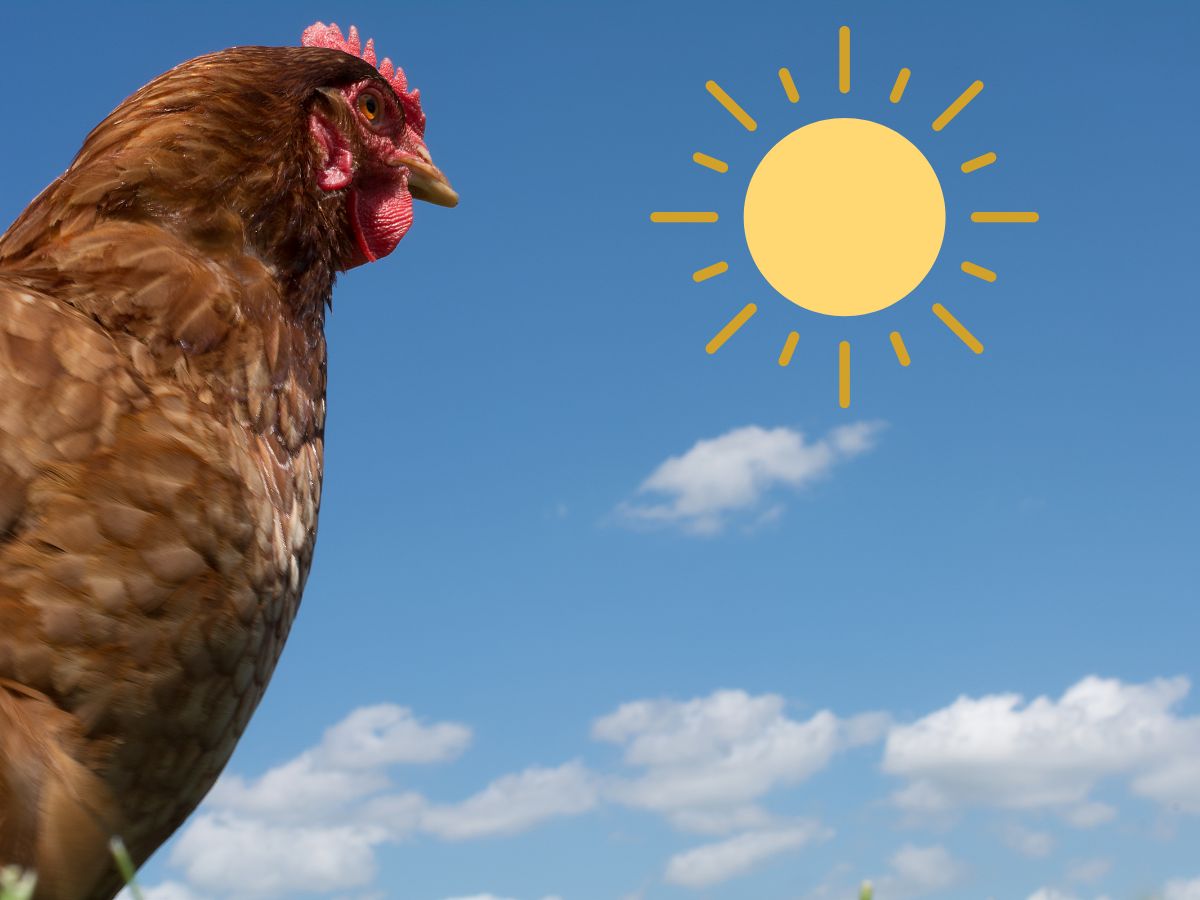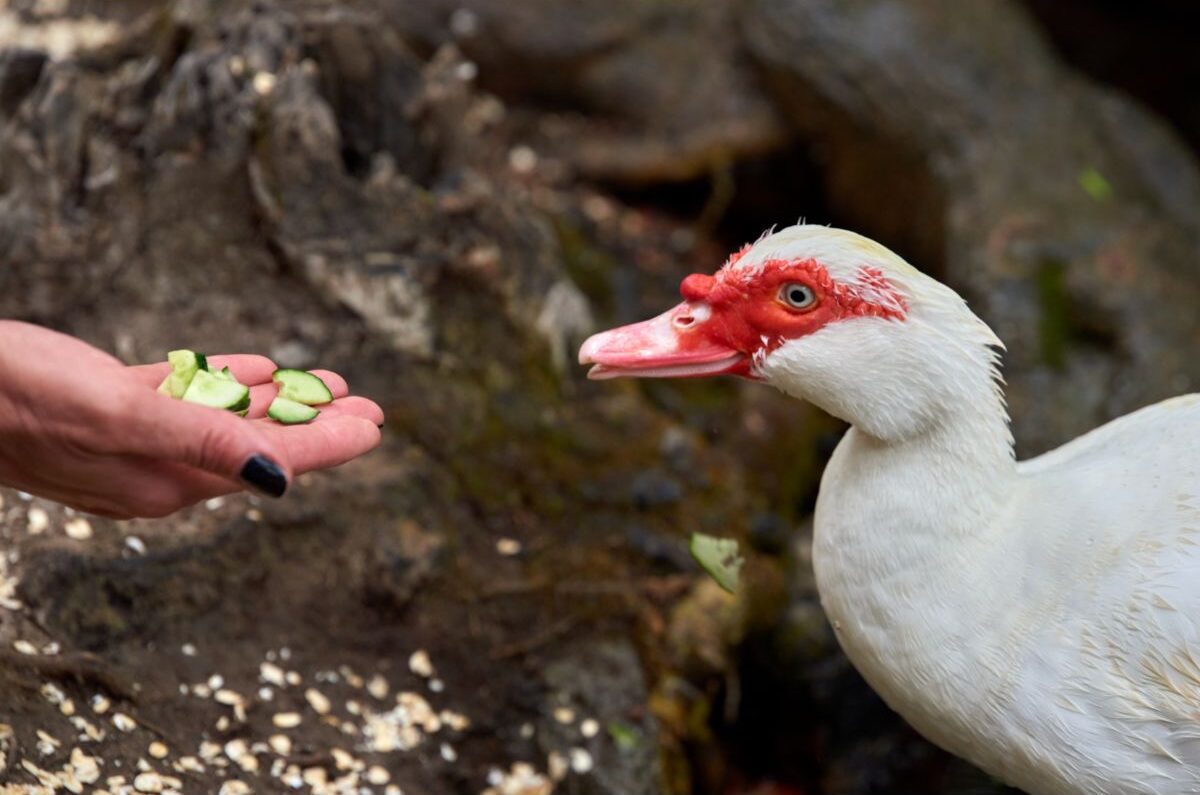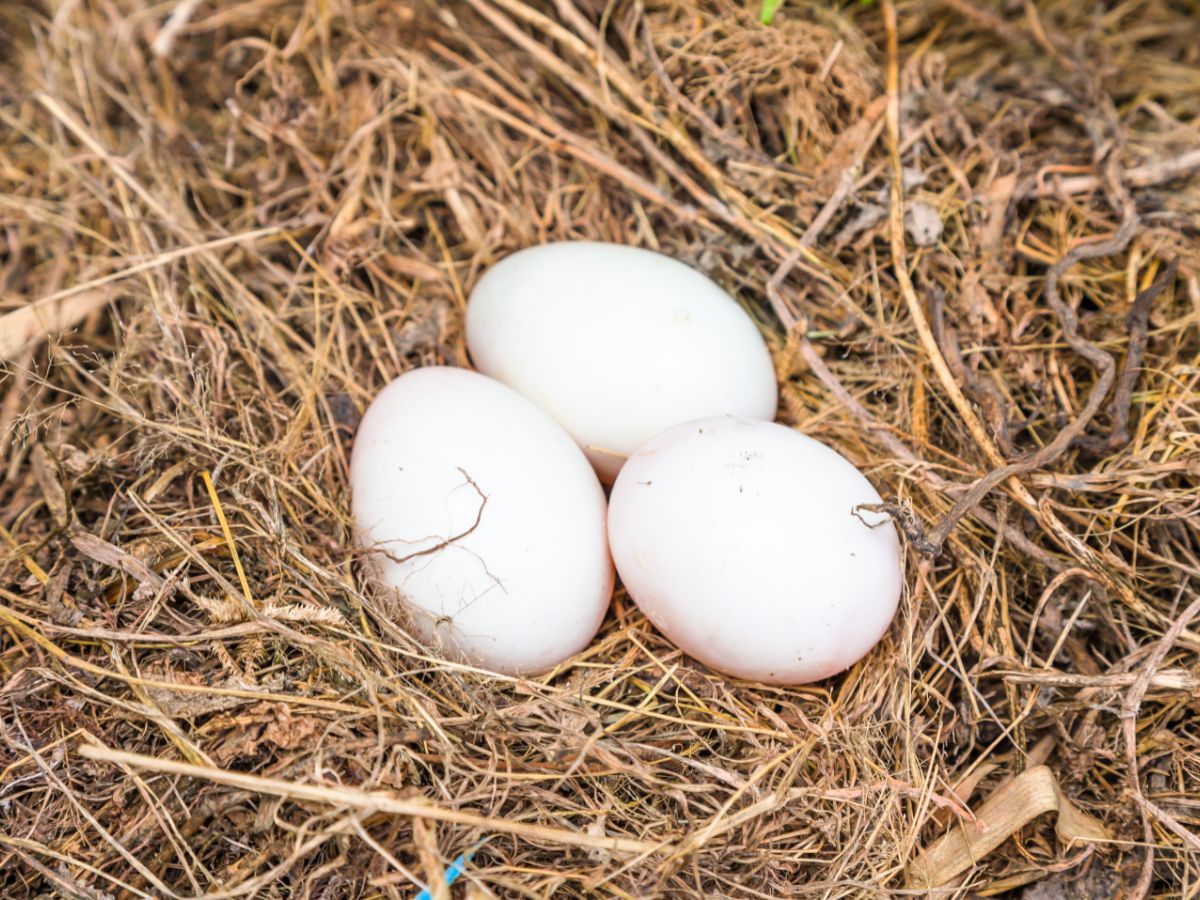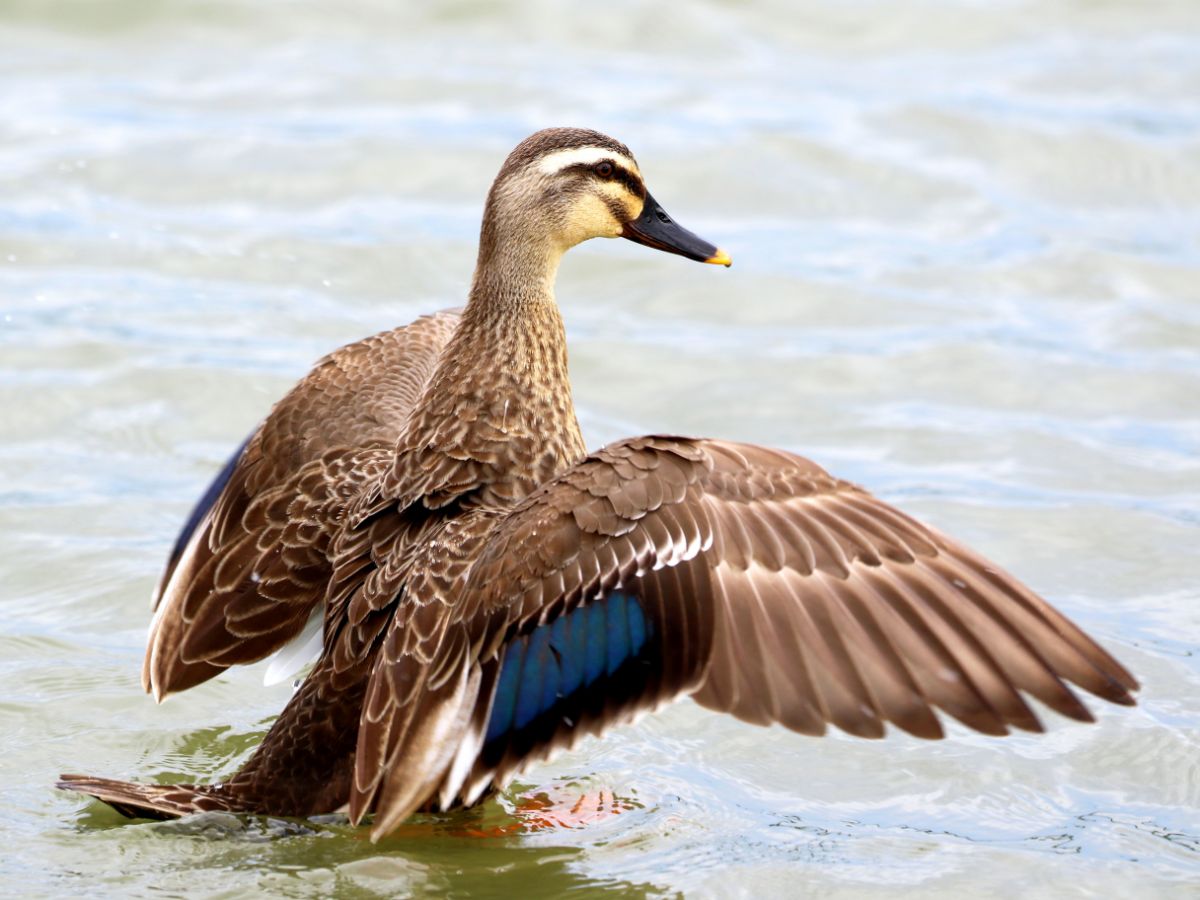Chickens are remarkably robust birds, and very little phases them, but one thing that can cause them unneeded stress is temperatures that are too hot or too cold. My friend decided to keep chickens on her farm a while ago. She got them at the end of winter when the temperature was not too hot or cold, but after a few weeks, she asked me how she could keep her chickens cool in summer.
Some steps you can follow to keep chickens cool in summer are to provide adequate shade, give them the right cold treats, freeze their feed, provide cold water, and ventilate their coop. Chickens can get dehydrated and suffer heat exhaustion when temperatures exceed 90°F.
Like most other animals, chickens can get heat stroke and suffer heat exhaustion, dehydration, and heat stress if the temperatures get too hot. Finding ways to keep them cool during the hot summer months is vital. I wanted to share the information and advice my friend and I got from our local vet.
Contents
What Temperature Is Dangerous For Chickens?
Like most poultry, chickens can get too hot during the summer. When chickens get too hot, they can become sick, and if it persists, they can die, but that is the worst-case scenario. The “too hot” temperatures for chickens depend on their breed, living conditions, and diet.
Larger, heavier breeds tend to become overheated when temperatures go above 85°F, while smaller, lighter breeds tend to be ok until the temperature reaches over 90°F. The temperatures combined with humidity in the summer can be dangerous for chickens, so taking precautions and helping them keep cool during summer is vital. Below are ways you can help your chickens stay cool.
How To Keep Chickens Cool In Summer?
No one likes to be in the uncomfortable hot, sticky, excessive summer heat, including chickens. Many chicken owners have come up with innovative ideas and ways to keep their ladies cool during the summer months. Here are a few best ways to keep your chickens cool in the summer.
Step 1 – Providing Adequate Shade
One of the most basic but needed steps is to provide them with shade. You can add a shade net or dark tarp above their run to keep the ground cool and provide safety from direct sunlight. You can also use poles and tent material to give them a canopy. To get them to use the shaded areas, put a few roosts in the shade, and they will relax in the shade in no time.
Step 2 – Freeze Their Feed
It’s not nice having to eat lukewarm food in the heat, so it makes sense to freeze the chicken feed. When chickens eat cold food, it helps to lower their body temperature and cools them down. The great thing about freezing the feed is that it keeps them cool, keeps the feed fresh for longer, and prevents the feed from getting moldy.
Step 3 – Giving The Chickens The Right Frozen Treats
As we know, the temperature of the chicken feed can help lower their overall body temperature, and the same can be said of treats. The trick is to feed them the right kind of frozen treats. Remember that treats high in starch will take effort to digest and increase their body temperature, so you should avoid warm starchy treats.
You can fill a plastic container with water and the treat and freeze it overnight. The chickens will pick at the ice till they get to the delicious treats inside the frozen water. You can also use muffin tins if you have a larger flock of chickens. Some of the best suitable frozen treats to give your chickens are;
- Peas,
- Watermelon,
- Pieces of peaches
- Strawberries,
- Blueberries,
- Cranberries
- Corn.
Step 4 – Fresh Water
It might seem very obvious but ensuring you give clean, fresh water every day (or a few times a day) will help cool your flock down. You can add ice cubes to keep the water as cold as possible during the hot summer days.
Step 5 – Give Them A Pool
Giving them access to a shallow kiddie pool is also a great way to get them to take a bath and cool off simultaneously. Some chickens may not take to it immediately, but it is worth trying. Remember to give them a perch to get in and out of the water easier, and don’t fill the pool up too high.
Step 6 – Keep The Coop Clean And Ventilated
The last few ways to keep your chickens cool in the summer heat is to keep their coop clean and ventilated. Keep their coop as clean as possible, and don’t remove any extra layers of bedding and flooring, so it’s not deeper than 2 inches. That way, the bedding won’t trap the heat, and it will help keep the coop cool.
If you have been using the deep litter method, you might want to stop during the hot summer months as this method is counterproductive during summer. The heat of the composting layer will add heat back into the air, creating a warm coop and adding to the overall humidity in the coop.
The ventilation is also very important in summertime. You can do this by ensuring there are screened openings around the coop to allow cool breezes to come through the coop (make sure they are still predator-proof). Watch out not to overcrowd the coop.
If you find there are too many chickens in a coop, you should build an extra coop. spreading the chickens out between multiple coops will help them cool down as chickens tend to huddle together, which creates more warmth, but if there aren’t that many in one coop it can keep the temperatures below 85-90°F.
How To Tell If A Chicken Is Overheated
It’s also crucial to know what signs to look for if you suspect a chicken might be overheated or suffering from heat stroke. Here are the symptoms/signs to look for;
- They will stand with their wings spread wide open,
- You might find that there is a decrease in egg production as they are battling to keep cool,
- They will pant heavily with beaks open (like a dog would),
- They will be lethargic and look weak,
- Their wattles and combs may be pale or look wrinkly (from dehydration)
- They won’t have a great appetite.
If you see any heat stroke or sickness symptoms, you must take measures to cool your chicken down. You can hold their bodies in cool water for a while to see if it helps. You should call the vet if they don’t recover in a few hours.
Conclusion
Keeping chickens is not as easy as it looks, and you must take care to keep them cool during the summer. The most effective measures are to give them cool water to drink, cool feed and treats to eat, and providing shade during the day will help keep them cool. If you suspect your chickens might be severely sick due to the heat, you must contact your nearest vet or animal clinic as soon as you can for treatment.




